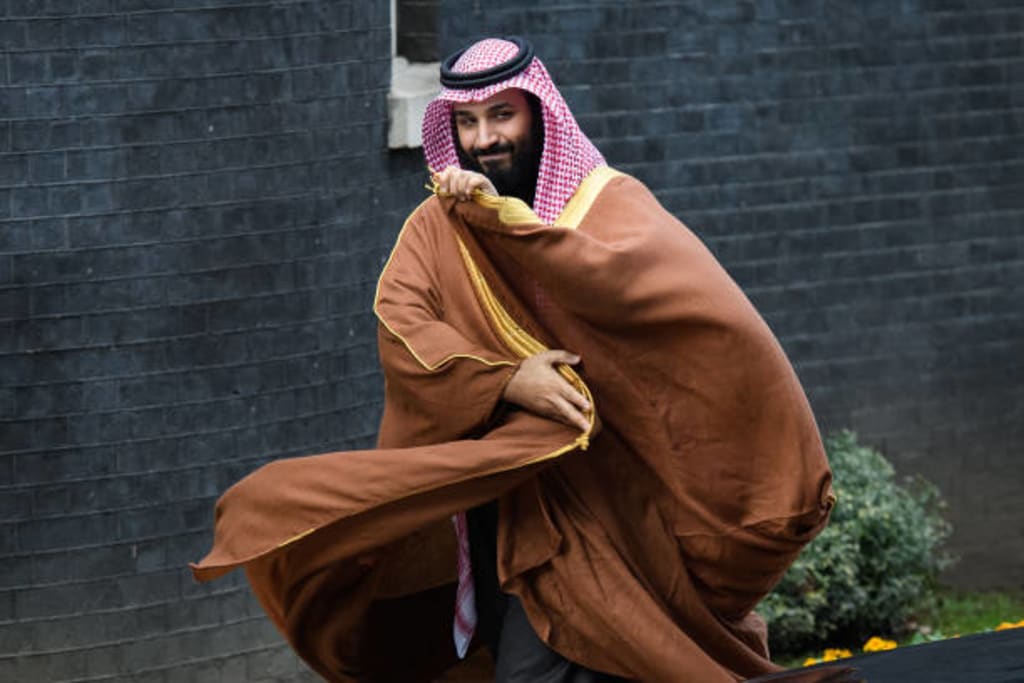How the young prince seized power in Saudi Arabia?
Rising to the Throne: The Youthful Prince's Ascension in Saudi Arabia

Hear what an older relative has to say: He is forced to relinquish his power and cede the title of crown prince to his younger relative, a man almost half his age. This is Mohammed bin Salman. In the West we just call him MBS. And from that moment in June, he consolidated power so quickly and so thoroughly that in Saudi Arabia he is known only as the crown prince, MBS becomes king.
With this new power, MBS seeks to strengthen his dominant position throughout the Middle East. One of his main policies was fierce opposition to Saudi Arabia's neighbor Iran. In that sense, he found an ally in the White House. In the kingdom, MBS is also trying to strengthen his authority and power over the royal family. Saudi Arabia's young crown prince arrests hundreds of his cousins In a crackdown on corruption, 11 princes and nearly 40 current or former officials have been arrested, reportedly at the luxury Ritz Carlton. (Yes, if you're a Saudi prince, the "prison" is the Ritz Carlton.) MBS called it anti-corruption, and he branded himself a fiscally responsible anti-corruption leader.
But we're talking about a guy who recently bought one of the most expensive homes in the world and spent half a billion dollars on painting last year. He clearly had motives for suppressing it other than fiscal responsibility. One thing to remember is that the Saudi royal family consists of thousands of members who use public funds from oil revenues to fund their unimaginably extravagant lifestyles. So it would not be difficult for MBS to accept anyone he wants.
After coming to power, MBS's second big move was to loosen the kingdom's strict moral and social rules. He took the power of arrest from the religious police. He expanded the rights of women in society and gave them the right to lead. On the surface, these are progressive social reforms aimed at modernizing Saudi society. But like anti-corruption crackdowns, the move is another attempt at a power grab. Saudi society is built on a kind of pact between the royal family - precisely called the House of Saud - and a large religious establishment directed by conservative Muslim clerics.
The clerics lend legitimacy to the Saudi family by giving them their blessing as rulers of the kingdom. In return, the family allows the clergy in the kingdom to strictly adhere to their uncompromising, puritanical version of Islam. This Faustian agreement means that Saudi princes like MBS and others can live such indulgent lifestyles and make deals with the West while maintaining religious legitimacy in the eyes of the public.
It was this balance that kept the Kingdom stable in this highly volatile region. But now MBS has stripped his family's interest in the deal, arresting hardline clerics who may oppose his progressive reforms. This could damage one of the main pillars of Saudi Arabia. The third way MBS is shaking up the empire is through his economic plans. The kingdom's income comes almost entirely from oil. Demand for oil remained constant for decades, and Saudi Arabia reaped the benefits.
But in 2014, the price of oil began to fall. And it became clear that investing the economy of the entire kingdom in this one resource was a dangerous strategy for the future. So MBS wants to end what he calls "oil dependence" to prepare for a post-oil world. He presented a vision of privatizing many sectors of the Saudi economy. And crush this giant state oil business. But this reform could also increase instability. Thanks to endless oil money, Saudi citizens are entitled to lifelong benefits such as free healthcare and subsidized housing.
But as MBS tries to privatize the economy and move away from oil, the subsidized lifestyle that so many Saudis enjoy could be at risk, and the public support that has kept the monarchy so stable for so many years could begin to wane. The Kingdom of Saudi Arabia is on the verge of one of the biggest changes in its history.
If this young leader consolidates power to change the status quo, he could also topple the pillars that have kept the kingdom as a more stable country in the Middle East.
Like what you read? Consider liking and subscribing for more! :)
About the Creator
Enjoyed the story? Support the Creator.
Subscribe for free to receive all their stories in your feed. You could also pledge your support or give them a one-off tip, letting them know you appreciate their work.






Comments
There are no comments for this story
Be the first to respond and start the conversation.